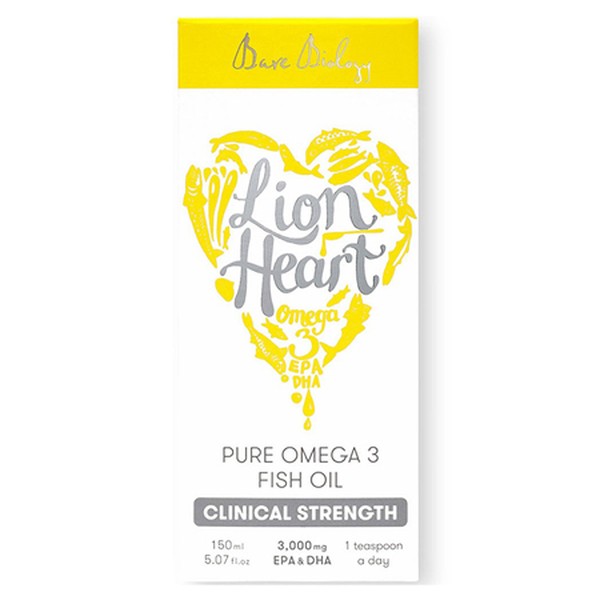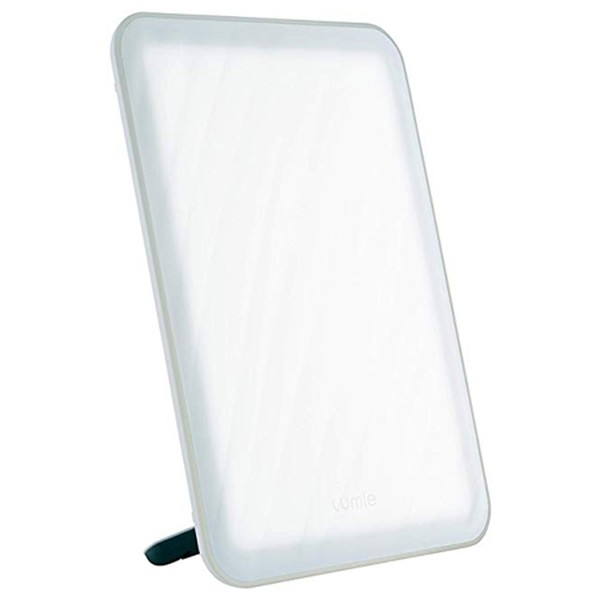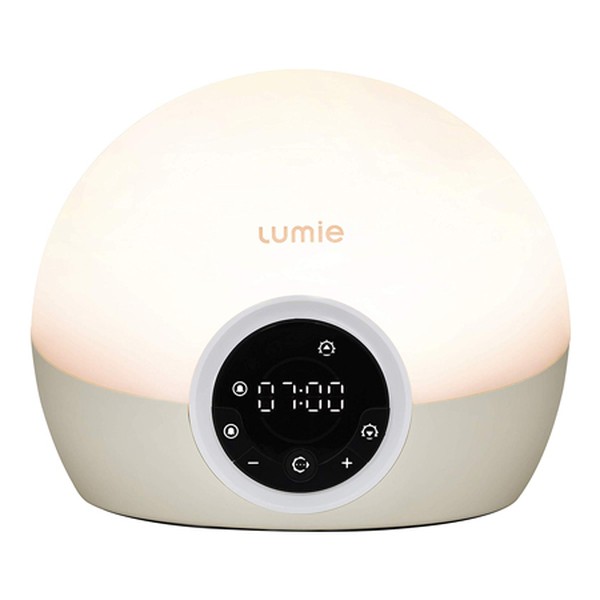7 Expert-Approved Ways To Beat SAD
Invest In A SAD Lamp
“SAD is a biochemical imbalance in the brain that develops when our exposure to daylight and bright sun dwindles. This can lead to a cascade of physiological changes, including decreased production of serotonin, our happy hormone, and an overproduction of melatonin, our sleep hormone. If you are feeling lethargic or low, it could be worth investing in a SAD lamp. Light therapy has some great evidence behind it and has even out-performed anti-depressants in several studies. Lights with a strength of 10,000 lux (such as those made by Lumie) are the most effective and are best used for around 30 to 60 minutes in the morning. There are also some very promising early results from using headphones to transmit light via the ear canals, which could be a handy way to get light therapy on an early morning commute.” – Dr Lucy Hooper, GP & Co-Founder of Coyne Medical
Stay Active
“Exercise offers serious benefits not only for your physical health but your mental wellbeing, too. There is strong data to suggest adequate amounts of exercise (aim for 150 minutes of moderate intensity per week, with ideally at least two resistance training sessions) over a 16-week period can be just as effective as using anti-depressants. Exercising outside can yield even greater benefits due to the added bonus of natural light exposure. I always encourage my patients to add in a ‘mental workout’ too. Apps like Calm and Headspace have made mindfulness easier than ever; this can have such a huge impact on our mood, outlook, sense of purpose and energy levels.” – Dr Gaurav Sabharwal, GP & Founder of One5 Health
Check Your Gut Health
“Did you know 90% of serotonin is made in your gut? It therefore goes without saying that having an imbalanced intestinal flora will lead to decreased serotonin production and have a negative effect on your mood. Beneficial probiotic bacteria found in foods like yoghurt, kefir, kimchi, miso, sauerkraut, kombucha and other fermented foods are great sources to include as a regular part of your diet.” – Rebecca Pilkington, Nutritional Therapist
Up Your Vitamin D
“Some studies have linked low vitamin D levels to low mood and the onset of SAD, so it could be worth getting your levels tested. A good average daily maintenance dose can range from 400-2000 units, so get your levels tested to tailor your intake to your individual needs. If you are severely deficient, you may benefit from doses as high as 50,000 units per week.” – Dr Gaurav Sabharwal
Boost Your Body Clock
“Regularity is key in your daily routine and can have a significant impact on your mood. Where possible, get up at the same time every morning, stick to regular mealtimes and bedtimes and try to schedule higher-intensity workouts for the morning and save soothing movement, like yoga, for the evening. Having regular sleep-wake times and sticking to a schedule can keep you feeling productive and combat sluggishness. Try to get as much sunlight as possible too – get outside when you can, even on cooler days, and when at home, open your blinds and curtains to allow natural sunlight in.” – Suzy Reading, Chartered Psychologist
Try 5-HTP
“5-HTP is a chemical made from the amino acid tryptophan, which the body converts into serotonin. Studies have suggested supplementing with 5-HTP can help boost serotonin levels in the brain, positively effecting mood. You can’t get 5-HTP from food, so supplementation is necessary – I recommend taking 200mg three times a day.” – Dr Shabir Daya, MPHarmS & Co-Founder of Victoria Health
Up Your Omegas
“Omega-3 fatty acids are the healthy fats found in oily fish, nuts and seeds as well as the likes of flax, hemp and chia seeds. They are the building blocks for the nerves and brain, and are needed for the proper growth, development and function of brain tissue. The evidence is quite compelling that boosting omega-3 intake enhances several aspects of brain health, including the control of mood and lowering the incidence of depression. Increasing your intake of oily fish such as salmon, mackerel and sardines is a great way to boost your omega levels, in addition to supplementing with an omega-3 fatty acid that includes both EPA and DHA.” – Rebecca Pilkington
Consider CBT
“It’s well documented that CBT (cognitive behavioural therapy), where you learn to change or redirect the repetitive thoughts that make you sad in a formal therapy setting, can aid symptoms of depression and help break negative thought patterns. You can either seek a referral from your GP or refer yourself for CBT free of charge via the NHS.” – Suzy Reading
Here are some products that help with SAD...


DISCLAIMER: We endeavour to always credit the correct original source of every image we use. If you think a credit may be incorrect, please contact us at info@sheerluxe.com.



